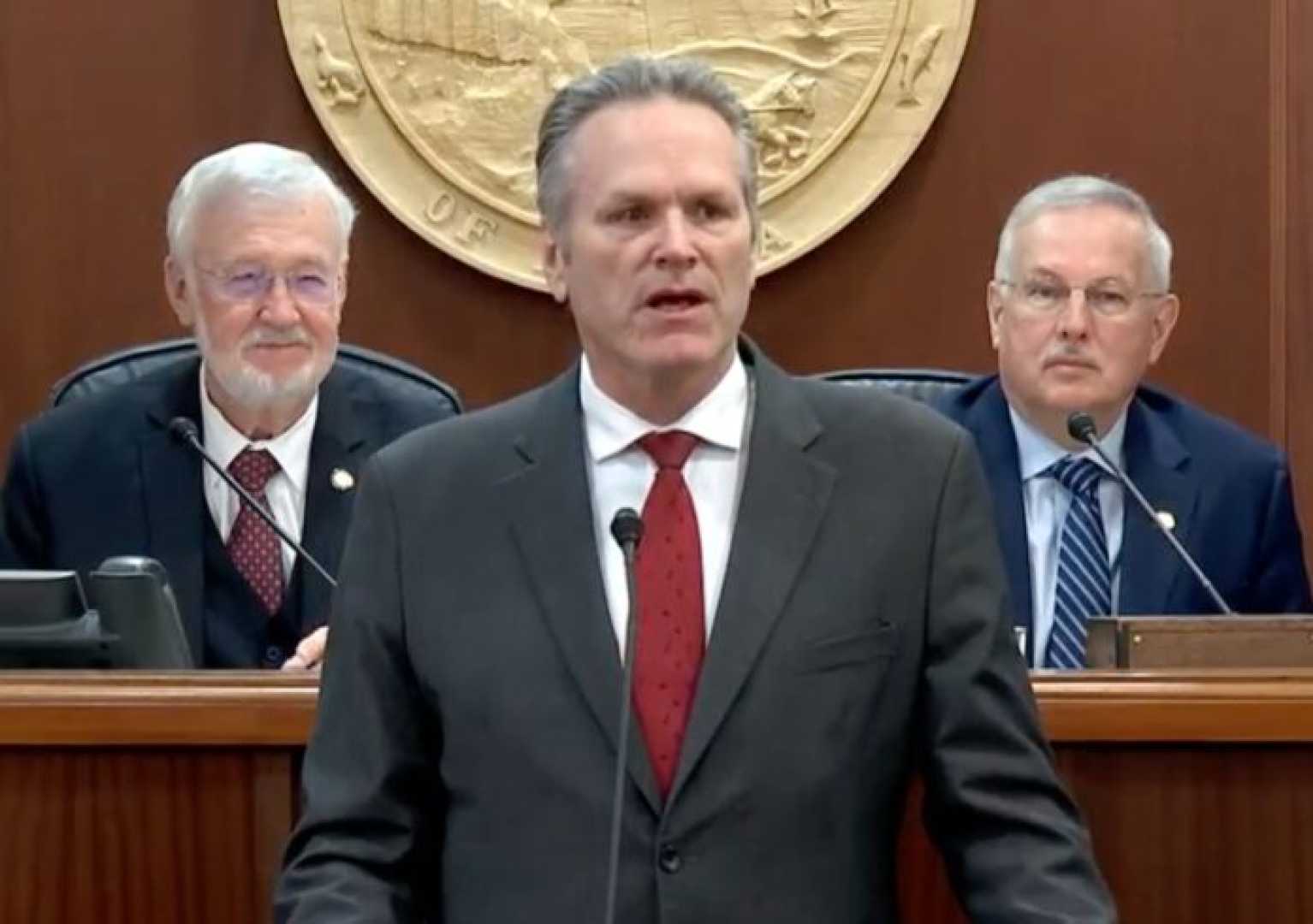Politics
Alaska Governor Dunleavy Proposes Joint Team for Fiscal Solutions

JUNEAU, Alaska — Governor Mike Dunleavy is calling on the Alaska Legislature to create a “joint team” with his administration to develop a long-term fiscal plan for the state. His request comes as the Legislature faces a tough fiscal outlook this year.
Earlier this week, the Senate approved a bill aimed at addressing these challenges, but lawmakers have warned that the state’s fiscal situation is likely to worsen next year. On Friday, Dunleavy issued an order intended to limit state spending, which includes a hiring freeze for public sector workers and restrictions on out-of-state travel, in light of falling oil prices.
In a letter sent to legislative leaders, Dunleavy expressed his opposition to several tax proposals being considered. He argued that a sustainable fiscal strategy must include revenue generation but should also prioritize spending limits and regulatory reviews.
Discussions about balancing Alaska’s budget have been ongoing, with proposals to change the Permanent Fund dividend formula and impose new taxes frequently rejected by the Legislature. A recent bipartisan proposal to pay a $1,400 dividend has stalled, while Senators hope that future improvements in state finances could allow for larger dividend payouts.
Senate President Gary Stevens acknowledged that Dunleavy’s proposal for a joint team is reasonable, recalling a similar task force established last year. However, he expressed regret over the governor’s rejection of current tax measures aimed at increasing state revenue, including taxes on out-of-state businesses.
One significant revenue measure approved by the Senate this week is projected to raise between $25 million and $65 million annually and would fund reading incentive grants. Meanwhile, proposals to align tax rates between privately held oil companies and public corporations could generate up to $150 million per year.
Despite ongoing discussions, legislators have noted that there appears to be a lack of direction from Dunleavy regarding fiscal policy. House Speaker Bryce Edgmon commented on a need for the governor’s involvement, suggesting that his proposal for a policy team is overdue.
Senator Mike Shower emphasized that the state’s troubling financial outlook necessitates timely action. He voiced frustration with the continuous studying of fiscal problems without resultant action, advocating for decisive steps towards a bipartisan solution.












